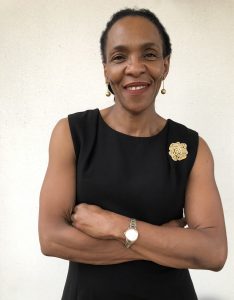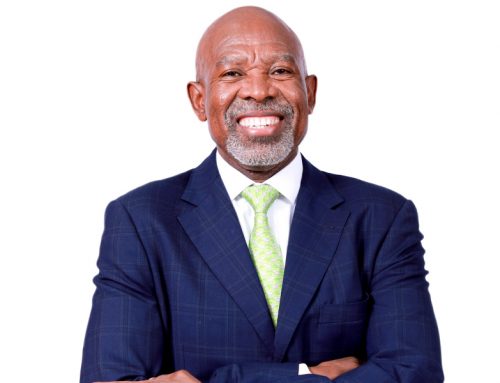 Justice Mandisa Maya is the first woman President of South Africa’s Supreme Court of Appeal, which dates back to 1910.
Justice Mandisa Maya is the first woman President of South Africa’s Supreme Court of Appeal, which dates back to 1910.
“The most challenging aspect of being a judge is the enormous responsibility you carry in resolving society’s disputes and determining people’s lives, including whether a person must go to prison for life,” says Justice Maya.
The far-reaching consequences of the judiciary weigh heavily on all 25 judges in the Supreme Court of Appeal to make the right judgments and to maintain their excellent reputation and record of delivery.
She says that with time and experience judges get used to the gravity of their decisions, but it requires of them to apply themselves to the maximum in each and every case, and to do a huge amount research and deliberation, given the diversity of appeals.
In addition to being President of the Supreme Court of Appeal, and managing her fellow judges, Justice Maya’s core function is to preside over cases in the Supreme Court of Appeal, which is based in Bloemfontein. This is a seasonal court, which sits for five months a year, with the other seven months devoted to critical preparation, reading and research
During the court’s recess period she spends most of the time at her home on a small farm outside of Mthatha. Here she sets aside her judicial mantle and encourages her neighbours, by example, to grow vegetables and keep livestock in order to be self-sufficient. “My husband and I are very focused on healthy, sustainable living and we are able to eat organic vegetables and meat because of the vegetables, pigs, chickens, goats and crops that we produce.”
Justice Maya’s husband, businessman and entrepreneur, Dabulamanzi Mlokoti, is from Johannesburg but he discovered how much he enjoys farming and the rural life. “I think it is my influenced that rubbed off on him!” says Justice Maya who was very involved in the Women’s Zenzele (‘Do It Yourself’) Association when she worked as judge in the Transkei from 2000 to 2004.
Zenzele, as it is called, is all about promoting women’s self-sufficiency, including growing their own vegetables, and doing sewing and beadwork that they can sell. “My mother introduced me to Zenzele and I continue to live this ethos in my community where far too many people do nothing but wait for their social grants. A while back I said to the ladies in my community ‘I see you there following the trajectory of the sun all day, when you could be feeding yourselves by growing vegetables’.
Justice Maya helped them to fence off vegetable patches as they complained that free-roaming livestock destroyed their produce, and her effort is taking root: “On my last visit home, one of the ladies showed me the beautiful potatoes she had grown, and another lady showed me her cabbages. It is a growing movement!”
A mentor to women in many different ways, Justice Maya is a champion of gender transformation in the judiciary. In 2004, she founded the South African chapter of the International Association of Women Judges and remains an active member. “There are still only six women judges out of 25 in the Supreme Court of Appeal and I am strongly recommending the appointment of more women judges, especially as several of our judges are coming up for retirement.”
She explains that to achieve gender equity throughout the judiciary, it needs to be addressed from the graduate level: “There is no shortage of women law students and they are often the brightest in their classes. But when they graduate they too often don’t get the same opportunities as their male peers because the profession is still very male-dominated at the senior levels. We face the same situation in the corporate and government sectors.”
Justice Maya says that only when many accomplished women in this country are appointed as senior judges, CEOs and chairs of boards will this start to change, as women in the senior positions will then become the norm.
In her own career, since 1999 Justice Maya has served as a member of the judiciary in various capacities and in May 2006, she was appointed as a member of the Bench in the Supreme Court of Appeal. She has served as an acting judge of the Constitutional Court and in 2015 was appointed as Deputy President of the Supreme Court of Appeal, and served as Acting President in 2016. In May 2017, Justice Maya became the first woman President of the Supreme Court of Appeal.
At her level of seniority, Justice Maya adds that her authority is not questioned as she has worked with her fellow judges for many years, and that everyone at this level, male and female, has proven their ability to an advanced level. “The issue is there aren’t nearly enough younger women judges being appointed and it is not for a lack of ability. Legislating gender equity in the judiciary and elsewhere might be a solution because to this day it hasn’t been done.”
Another issue that Justice Maya is committed to changing is the lack of access to the law for the majority of people. “Litigation is very expensive and so it remains inaccessible to most, and therefore people’s rights are not universally exercised. This needs to change,” says Justice Maya who has served as a member and as Chairperson of the South African Law Reform Commission since 2013 and as a board member of the South African Journal on Human rights.
Her deep sense of justice and equality stems from her parents, Oxley and Mavis Maya, who were teachers committed to ensuring that learners in the deepest rural areas of the Transkei got the best education. “My father was a maths teacher and my mother an English teacher. She loved literature, including Shakespeare, and she would put on Julius Caesar with children from her school in Tsolo and they would win national competitions.
“She loved African literature too, and this was very much part of the diverse syllabus she taught, which is what learners need. In this world grown so small with technological advancement, it makes absolute sense for children to experience brilliant writers from everywhere. I find it patronising to limit our children to one or other type of literature,” says Justice Maya, adding that she is “deeply concerned about the atrocious standard of school education in our country today. What future are we offering our children? My parents didn’t have money but they were brilliant teachers who nurtured brilliant scholars.”
In 1966 her father moved into broadcasting to extend his educative reach on what was then Radio Bantu in King Williamstown. “Apart from being a maths teacher, my father had an agricultural degree from what is now the University of Fort Hare, and so one of his programmes was on agricultural, covering everything from farming to water conservation. He was ahead of his time, I well remember an award-winning radio documentary he produced on water conservation, what needed to be done and why it had to happen in earnest in South Africa. It was called Amanzi Umthombo Obomi (Water is the Source of Life) and I am currently negotiating with SABC to give it to me.”
Justice Maya attended school in King Williamstown until 1977 when she moved to Mthatha. “As a result of the 1976 Soweto uprising there was hardly any teaching happening in most of South Africa’s townships, and many black parents sent their children to the Transkei to complete their schooling.”
Justice Maya matriculated from St Johns College in Mthatha, which she describes as “a very good missionary school” and subsequently graduated from the former University of the Transkei with a BProc degree in 1986. She went on to complete her LLB from the University of Natal in 1988 and in 1990, received her LLM from Duke University in the USA on a Fulbright scholar.
“Coming from South Africa, which was so closed at the time, it was mind-blowing to find myself at Duke in my mid-20s. It was a magnificent experience and character-building being so far away from home on my own. I emerged from Duke feeling super confident in my ability to have gone there from rural Transkei and succeeded.”
That she would return home to Transkei was never in question: “It is a place that keeps tugging at my heart and drawing me back. It has its own special charm and beauty and I am yet to see any place in the world with the raw beauty of the Wild Coast. And then there are people – beautiful warm people with such a sense of themselves.”
“The Transkei is certainly not without considerable problems, including deep poverty and educational issues, but in the relationships between most of the people here there is a greater sense of unity. Whether you are a judge or a fisherman or black or white, people in the Transkei speak to each other as equals. And while I do also have a very good life in Bloemfontein for five months of the year, I feel a deep sense of coming home every time I return to the Transkei.”
For her significant contribution to the development of law, constitutional democracy and human rights, Nelson Mandela University conferred an Honorary Doctorate on Justice Maya at its graduation ceremony on 18 April 2018.




